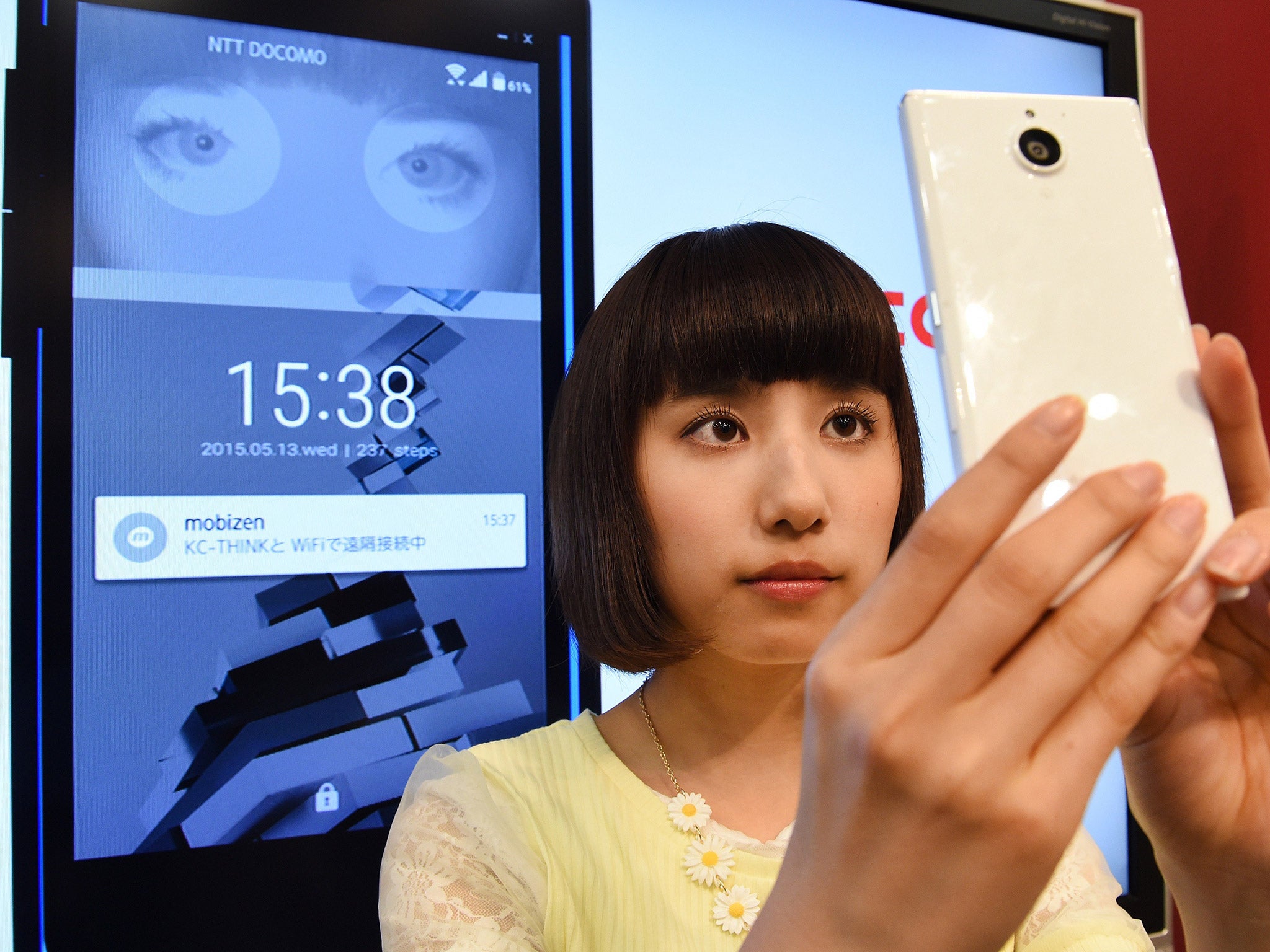Move over Apple iPhone and fingerprint scanner, a Japanese mobile that can recognise you by your eyes is about to hit the shelves.
The Arrows NX F-04G from Fujitsu comes with a first of its kind iris recognition system that will allow users to unlock the device, sign into apps and even authorise payments as the company CEO demonstrated by ordering a pizza at the product launch, according to the Wall Street Journal.
An infrared LED works in tandem with the front-facing camera of the phone to illuminate the structure of the coloured part of your eye and snap a reliable likeness.
Much as with fingerprint scanners on current mobiles, you need to train the system by looking at animated circles on the screen until the software makes a decent individual match, and then the more you use it, the smarter it gets. In fact, the system is apparently so good that the error rate in the prototype - shown off at the MWC trade show earlier this year - was as low as one mistake per 100,000 attempts.
Owners of the phone, which goes on sale in Japan later this month, will already benefit from support from the likes of Google, PayPal and Microsoft’s payment systems on top of many more thanks to the FIDO (Fast IDentity Online) authentication standard to which the iris recognition system conforms.
The sensor is one of many biometric identification systems making its way into modern personal tech. Devices like the wrist-worn Nymi hope to use the signature from a heartbeat known as your electrocardiogram or ECG to instantly unlock all of your devices by simple proximity thanks to confirmation over Bluetooth.
The obvious concern for observers, of course, is over who has access to your biological identity data and just what lengths criminals might go in order to get the keys to your digital life.
Subscribe to Independent Premium to bookmark this article
Want to bookmark your favourite articles and stories to read or reference later? Start your Independent Premium subscription today.


Join our commenting forum
Join thought-provoking conversations, follow other Independent readers and see their replies